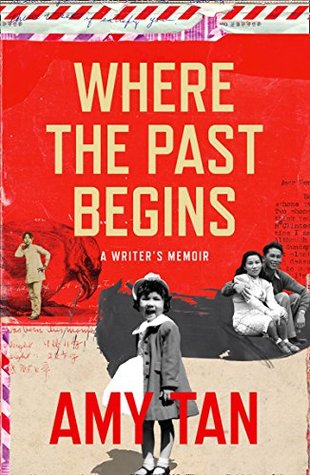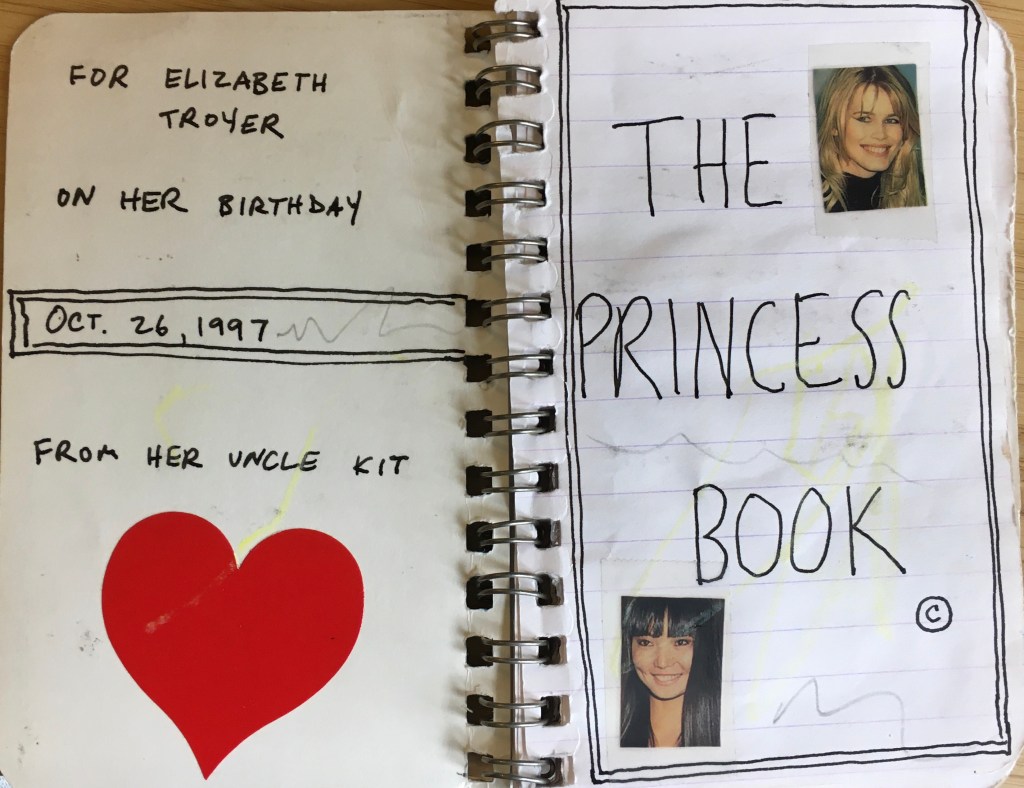I gave myself a bye on blogging last week.
I needed a rest. I was also uninspired by the book I was reading.
After hearing her interviewed on Cheryl Strayed’s new podcast, Sugar Calling, I decided to check out Amy Tan’s recent memoir Where the Past Begins (2017). I’d never particularly enjoyed Tan’s short stories, which I’d read for creative writing classes in college, but I was struck by this quote of hers, pulled out as the podcast title: “You don’t take dictation [as a writer], you find the truth.” (Listen here.)

Even though Tan’s book contains everything I should love (refer to my previous post) — I just could not get into it. Every time I tried to read a few pages, I would soon find myself scrolling through texts or Instagram, with no memory of putting the book down.
I’m not sure it’s entirely the book’s fault. I enjoyed parts of it. Tan’s life story is compelling, and she is deeply insightful. Hers is a vignette-style memoir that was apparently crafted by sending random 20-25 page personal essays to her editor every week for a year. It’s less a narrative of a life than a collection loosely related essays on her past.
She is full of interesting ideas. She writes of herself:
“I am a writer compelled by a subconscious neediness to know, which is different from a need to know. The latter can be satisfied with information. The former is a perpetual state of uncertainty and a tether to the past.”
Brilliant. Super-insightful.
And yet, perhaps because we’re in our the eighth week of quarantine here at Casa Troyer Behrens and I’ve had enough self-examination, or perhaps because I’m all-memoired-out for the moment, this neediness to know in Tan quickly started to drive me crazy.
After a week of snail-paced reading (during which I made it halfway-through the book) I decided to let it ascend back to its home in the Indianapolis Public Library cloud.
It might be that Tan’s mind is too similar to my own for me to enjoy visiting there. What annoys you in others is what you don’t like about yourself, as the saying goes. Where the Past Begins opens with Tan sitting at a desk in her office, sorting through every paper artifact from her life, her parents’ lives, and their parents’ lives. She reigns over a pile of old wedding announcements, ancestors’ applications for citizenship, old Christmas letters, and schoolwork.
At the time of writing, Tan is in her mid-60s. She has preserved her long-dead father’s master’s thesis and old sermons. She has kept her brothers’ elementary school report cards. To write this book, she relies on these piles old paper to conjure up people and memories from them. She admits to being a packrat, saying, “Even the molecules of dust in the boxes are part and parcel of who I am.”
I found this object-based relationship to self off-putting. My first thought was defensive: So I have to keep every last piece of paper to write a memoir someday? Transport them from house to house forever? Cherish the dust itself?
I understand Tan’s impulse to keep things. I experience that same neediness to know the past — especially the histories of the people I love. It can make me a good detective when called for, but it’s not a productive impulse to let run wild (particularly in the age of social media, when I can get trapped looking at increasingly far-removed people’s profiles into oblivion). So indeed, what I found triggering about Tan’s approach has more to do with me than her.
Shortly before getting married this winter, I confronted a box of old journals my closet. It was heavy, packed with 10 or more filled notebooks from the last 15 years of my life. Those journals held entries from middle school about my crushes, entries from college about my crushes (this is a strong theme, unfortunately), collages from studying abroad – ticket stubs, letters from boys, friends, family members… copies of poems, artistically-drawn song lyrics, and all kinds of ruminating. I used journals to process my feelings when they got too big, needed an outlet, and my friends were burnt out on hearing me rehash whatever I was stuck on at the moment.
Shortly after I started dating Thom, I observed that my journaling habit started to dwindle. In retrospect, I was starting to figure out how to process emotions in real time. Journaling used to be my space for that, but I was learning to do it out loud, with Thom as my witness.
Over the last few years, whenever I opened the old journal box and started reading, I soon felt bogged down by old feelings. Why did X person do Y? goes most of my entries. Many describe in great detail super awkward interactions. I was stubbornly dedicated to writing the truth of my experiences and not romanticizing anything. I wrote minute-by-minute records of middle school dances. Who asked me to dance the slow songs, how sweaty they were, how self-conscious I was about being taller than them. My first makeout in high school, in the Haunted World cornfields, where I laughed because it was so bad, and then quickly had to recant that reaction to fix the stab to the boy’s ego. In college, shattering a wine glass in a boy’s room and him accidentally stabbing himself on the broken glass and needing to run for help. A guy at a summer internship telling me, entirely serious, that his birthmark meant that he’d had a had a former life (and my lack of one meant I was a “new soul”). I was way into boys, and every boy-related novel and movie, but I made a habit of writing the awkward truth of my own experiences. Eventually, I could usually find it funny.
Undoubtedly it was useful to write all of that stuff down, if only to preserve the memories. But to keep all of those pages around forever started to feel like a burden, especially after I met Thom and observed the very different way he moved through the world.
Thom has thrown away all of his old letters (except the ones from me… I think.) He’s never been able to keep a journal, either. And I mean keep in his possession. Even when he decides to start journaling, the journal will escape. The first summer I knew him, he left a filled-out journal from his summer of hitchhiking on the top of his car right after he returned home. He never found it. This fall, after briefly keeping a digital journal on his tablet, he lost the tablet in a cab in New York City (and his writing app was not backed up to the cloud). “God doesn’t want me to keep a journal,” he has concluded — and I concur. Thom is not a natural holder-onto-the-past. He’s not a grudge holder, or a ruminator. If he’s going to ruminate about anything, it’s the future (whether his plans and habits are a match for his goals and ideals). He writes things down, then the universe whisks them away.
I kept my box of journals at first, after we moved in together, thinking it was an important part of my history as a writer. I had never considered that it was anything other than essential to carry these papers around from house to house, along with my book collection, for the rest of my life. But watching Thom toss all of his old letters, lose his journals, and generally exist so freely (also without shoes, or very many clothes) — I started to feel envious. How did he get to be so free?
At some point, I realized there was nothing stopping me from joining him there. I just had to rethink my idea of what a reader is, and what a writer is. For as long as I can remember, I have kept piles of books and journals with me, because that’s how I know who I am. It’s tangible evidence, a grounding device, a reminder. I’ve been told I even did this as a toddler. But what if it didn’t have to be this way? Could I still write a memoir someday without a written record of all of my grade school crushes? Could I trust my memory of the past without checking my contemporaneous accounts?
I decided to give it a go. I threw away almost everything in the box. The journals from grade school, high school, college, studying abroad, my early years in Chicago. I emptied everything into the trash except my letters from Thom, my great-grandfather’s scholarly articles from his time as an English professor at Bucknell, and the “Princess Books” that my Uncle Kit had made for me on a few early birthdays. In other words, I kept things that made me happy, which turned out to be things created by other people.

I used to rely on my box of journals to prove to myself that I was a writer, and that my memories were real. But living without them, I’ve begun to realize that my passion for writing is not something that can be lost, or taken from me. Nor can my memories (at least, not yet). The writing impulse can be either used and enjoyed or left to collect dust. But the mere fact of the journal box can’t help me remember who I am as a reader and writer. Only the act of writing can. I have to keep practicing it, but I don’t have to keep the evidence.
I’m still working on paring down my book collection. I recently got a new Kindle, determined to commit this time around.
(This is my fourth Kindle. I sent back the first three, but now I am finally open to e-reading in a real way. It took a global pandemic.)
Easy for me to say, perhaps, as I type a blog that will be stored in the cloud. I can find information and photos as needed online without taking responsibility for the storage space it requires. But in any case, I’ve never felt more free.

I love this! I’m a journal thrower out’er mysef. But it took me a while to get there. Now i love it. I figure if something is important, it’ll float back to me. There are about 10 different lines in your post which could be isolated for pull-quotes, each states an idea so clearly and distinctively. I love the way you write.
LikeLiked by 1 person
Thanks, Kit! 🥰
LikeLike
Maybe 4th time is the charm for your Kindle habit?! You know how I love mine. I’ve never been a journaler, but was an avid letter writer in the past. You are making me ponder whether the bags and boxes of letters I’ve saved from high school and college (pre-Internet, of course) are still important. Hmm
LikeLiked by 2 people
One of my favorite things about kindles is that you can highlight quotes; quotes often help me preserve the essence of the book, so it is really helpful!
You got me thinking about what I actually journal about, what I find important in the world. I don’t journal often, but I am happy with what I have, for the most part (there are some boy entries, smh). Sometimes it is not completely giving something up but prioritizing what is actually important to remember, in my opinion.
LikeLiked by 1 person